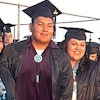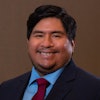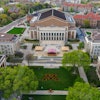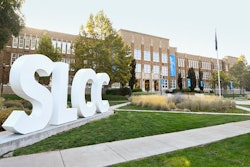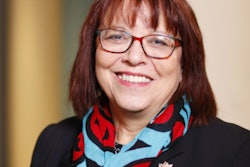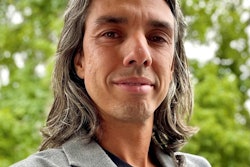TWIN BUTTES N.D.
An effort to save the Mandan
language may rest on the shoulders of a 75-year-old horse rancher.
Experts believe Edwin Benson is the only person living who
speaks fluent Mandan, the language
of the American Indian tribe that became the host of Meriwether Lewis and
William Clark during the explorers’ winter encampment in North
Dakota more than 200 years ago.
For past three summers, in six-hour shifts, Benson and California
linguist Sara Trechter have camped out in a small office so he can speak into a
microphone while Trechter takes notes. The two recently finished transcribing
seven Mandan folk stories.
Benson’s grandfather insisted on keeping alive Mandan
traditions and language. Ben Benson forbid speaking English in his home, a log
cabin near the mouth of the Little Missouri River.
Trechter, who teaches at a university in Chico,
Calif., learned about efforts to preserve
the Mandan language from her
doctoral thesis adviser, a Siouan language expert at the University
of Kansas. She got in touch with
Calvin Grinnell, who works in the Mandan,
Hidatsa and Arikara cultural preservation office on North
Dakota’s Fort
Berthold reservation. Grinnell
directs the language preservation project with Joseph Jasztrembski, a history
professor at Minot State
University.
The effort started about seven years ago with a grant from
the National Park Service, which paid to videotape Benson telling folk stories
at the Knife River Indian Villages National Historic Site near Stanton.
The project’s goal is to produce material for language labs
on the reservation, ideally with the videotapes of Benson telling his stories
in Mandan and follow-along captions
of Trechter’s transcriptions on the bottom of the screen.
Work has been slow, plagued at times by technical problems,
sporadic funding and busy schedules. Benson uses an office near the Twin
Buttes Elementary School,
where he teaches Mandan.
Since finishing the folk stories, Trechter and Benson been
recording and transcribing Mandan
social and cultural customs.
Trechter has had master some quirks of the language. She
learned, for example, that a bird is said to “stand” while flying but
“sit” when perched on a tree. She has found that some words or
phrases simply defy translation into another tongue.
In the archives of the North
Dakota Cultural Heritage
Center in Bismarck,
Trechter said she found “boxes and boxes” of material, including a Mandan
dictionary compiled in the 1970s and 1980s, and manuscripts from the 1920s and
1930s.
Jasztrembski compared the work to restoring an endangered
plant or animal species.
“I think language revitalization is something like
that,” he said. “It takes a great deal of time to do.”
Grinnell said the tribal college archives has hours of tape
recordings of elders from the 1970s that might provide helpful material.
Trechter, 44, said she already seen enough material to keep
her busy for the rest of her career.
“There is no finishing with Mandan,”
she said.
Information from: The Forum, http://www.in-forum.com
– Associated Press
© Copyright 2005 by DiverseEducation.com

